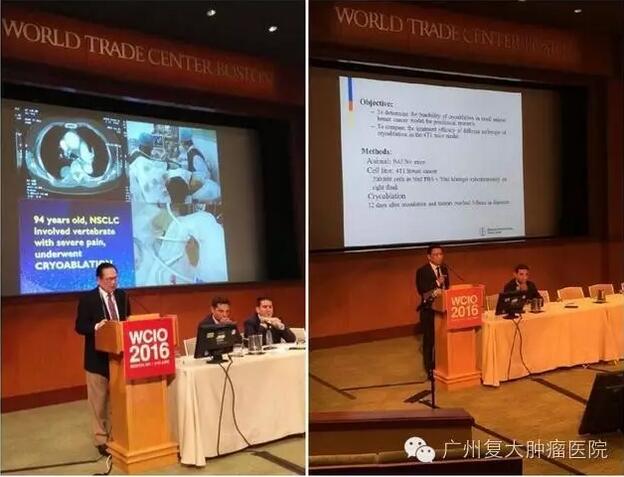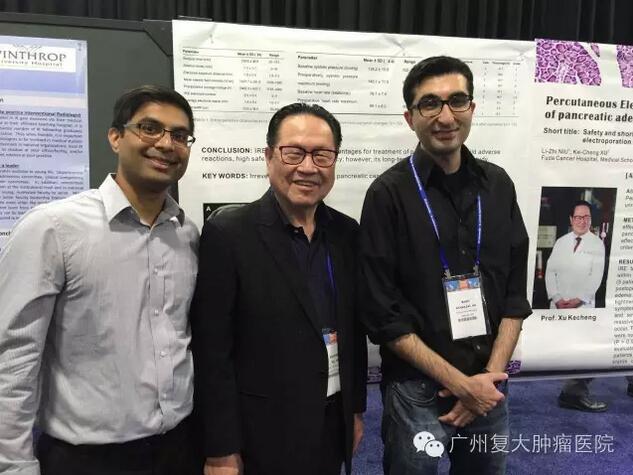The annual World Conference on Interventional Oncology (WCIO) was held at the World Trade Center in Boston, America from June 9 to June 12, 2016. The conference witnessed dozens of reports on tumor ablation and vascular intervention delivered by experts from different countries of the world. Three experts from Sun Yat-sen University Cancer Center, Guangzhou Fuda Cancer Hospital, Peking University Cancer Hospital of mainland China were invited to give reports at the conference.

At the conference, Xu Kecheng, chief president of Guangzhou Fuda Cancer Hospital gave a report themed on "Cryosurgery for Cancer- Based on 8000 cases". It introduced the experience Fuda Cancer Hospital has gained in the application of cryoablation for eradicating small tumors, tumor debulking, complementing to surgery and alleviating the pain caused by tumor over the past ten years and more. At the same time, he also shared with the participants the research findings on cryo-immunity. As the first and only report on cryosurgery for pancreatic cancer, it has drawn the attention of the participants.

L: Xu Kecheng is making a report at the conference
R: Expert from Sun Yat-sen University Cancer Center is making a report
The current session of conference upholds the concept of efficiency and environmental protection. The participants can learn about the agenda, time and venues of all events and mark the interested ones on the WCIO 2016 app on their phones, which will send synchronous reminders during the meeting.
Prof. Xu Kecheng noted that as can be seen from the reports delivered in the first two days, interventional treatment for cancer has made the following advances in recent years: firstly, Stromal ablation technology has become more mature. Cryoablation, microwave ablation and irreversible electroporation (namely NanoKnife) have been widely or increasingly used in the treatment of liver cancer, lung cancer, kidney cancer and prostate cancer. Each of the treatments has its own merits and the therapeutic effect depends on the experience of different doctors. Various types of navigation technology and equipment have emerged and have been used in positioning the probes during the procedure, which has made the procedure of ablation more effective. Secondly, new interventional drugs (including drug eluting beads and Yttrium-90 Microsphere) have been used in clinically treating liver cancer, which has delivered better therapeutic effect than that of traditional drug iodinated oil. Thirdly, basic research has gone to a deeper level. New findings, new ideas and new way of thinking has been presented regarding to the relationship between tumor microcirculation, tumor hypoxia and tumor intervention.

Xu Kecheng (M) and participating experts
Jin Yong, director of the Department of Intervention, the Second Affiliated Hospital of Soochow University noted that Irreversible Electroporation(IRE) will become the future development trend for tumor ablation. IRE has been widely applied in tumor treatment and experts from mainland China also shared with the participants their clinical experience in this regard.
Prof. Xu noted that China has carried out all the interventional technologies for tumor that has been used in the world, especially in America. Considering China’s large population, the number of cancer cases tops the world. Doctors have also accumulated rich experience in tumor treatment and some treatments also pioneer the world. Cryablation for pancreatic tumor is a very good example. Hence, it is no exaggeration to say that China leads the world in terms of interventional treatment, especially ablation treatment for tumor.